June 2, 2025 | 06:33 GMT +7
June 2, 2025 | 06:33 GMT +7
Hotline: 0913.378.918
June 2, 2025 | 06:33 GMT +7
Hotline: 0913.378.918
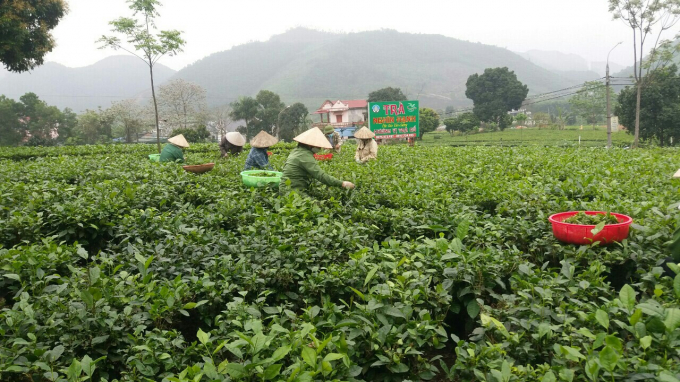
The planting area code is considered a passport for Thai Nguyen tea to be exported abroad. Photo: Dong Van Thuong.
Thai Nguyen tea is mostly exported as raw material, with an average price of less than 60% of the world market price. It is purchased to combine with other types of tea or to extract. Thai Nguyen tea output for export always accounts for a moderate proportion compared to that of domestic consumption. While the export price is always much lower than the domestic consumption price. With just two major export tea products, dried bud tea and finished black tea, the export market remains centered on a few well-known consumers, including Pakistan, Taiwan, Russia, China, Japan, and South Korea...
According to Ms. Nguyen Thi Hien, Chairman of the Board of Directors of Ha Thai Tea Joint Stock Company, the quality of Vietnamese tea, particularly Thai Nguyen, s not inferior to any tea from other countries. Certain nations combined and extracted dried buds tea imported from Vietnam, then attached a new label to the new product, which is sold for a dozen times higher than the purchase price. While it is recognized as a critical crop and receives significant support and investment, the weaknesses and limitations in our export tea products are accumulated during the whole process of planting, tending, processing, promoting, and consuming.
Since mid-2021, the Thai Nguyen province Sub-Department of Crop Production and Plant Protection has established certification of planting area codes for 17 production areas with a combined area of 108 hectares. Participants include 238 households in 16 cooperatives and one company. Tea takes up the majority of the program's area.
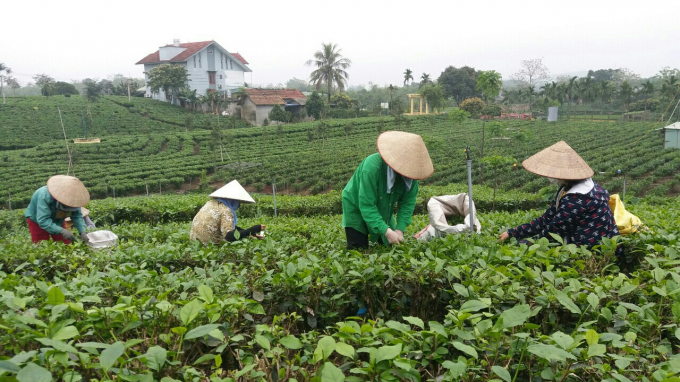
Ms. Ma Thi Thuy Phuong, a project official, explained that the unit constantly investigates, inspects, and reminds farmers to record information in their agricultural notebooks, organize Zalo groups to oversee, and expedite the project's execution. Simultaneously, the unit updates the date of production facilities to a software system regularly to execute regulatory compliance checks on water and soil samples. Additionally, the project's implementing unit and participants collaborate to identify a reputable provider of agricultural supplies.
Thai Nguyen Agricultural Development Company was chosen as the program's plant protection agent provider. M. Nguyen Ngoc Nam, the company's director, stated that the plant protection agent is biological and herbal in origin and that the unit has been producing it in collaboration with other cooperatives for years. Pesticides imported from the United States and India have been authorized by the Ministry of Agriculture and Rural Development as meeting the list requirements. Additionally, the firm sells the aforementioned items to a number of the country's key tea areas and has received positive feedback.
Mr. Nguyen Thanh Duong, Director of Tan Cuong Thai Nguyen Midland Tea Cooperative, explained that the cooperative now has 15 product lines with prices ranging from VND 320,000 to VND 3.8 million per kg. However, the items have long been consumed in the home market or purchased as hand luggage when going overseas.
We have registered 5 hectares for a planting area code set. The cooperative is committed to meeting all production standards to be granted a planting area code, which will enable it to export products and increase cooperative members' income and standard of living.
Mr. Nguyen Ta, Director of the Thai Nguyen Province's Sub-Department of Crop Production and Plant Protection, stated that after more than two decades of implementing several programs and projects to increase tea production, it is prime time for Thai Nguyen tea to thrive. And the expanding area code is Thai Nguyen tea's passport to the rest of the world. It is a critical solution for increasing the value, quality, and brand of agricultural goods. Simultaneously, serving well for domestic consumption and export of Thai Nguyen's primary crops. Thus, increasing the competitiveness of agricultural exports, fostering connections, and establishing sustainable value chains.
Thai Nguyen has a smaller tea area than Lam Dong. In the north, Yen Bai led some times in the tea field. However, Thai Nguyen not only holds the title of "the first renowned tea" area but also leads the country in tea area with about 21,700 hectares, compared to Lam Dong's 13,000 ha and Yen Bai's 8,500 ha.
Within the last two years, tea areas in some tea hubs, like Lam Dong and Yen Bai, have been halved, whereas Thai Nguyen tea producers have expanded production. This signifies that tea plants are indeed contributing to economic efficiency and have established themselves as the province's staple tree. Numerous specialty tea models have generated billions of dongs, and tea tree literally means "money tree."
Translated by Linh Linh
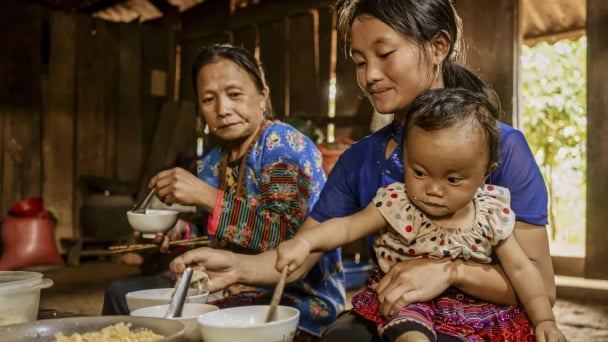
(VAN) 30 experts in health, agriculture and environment participated in a consultation workshop to inform the development of a methodological framework aimed at supporting Vietnam’s transition to a sustainable food system.
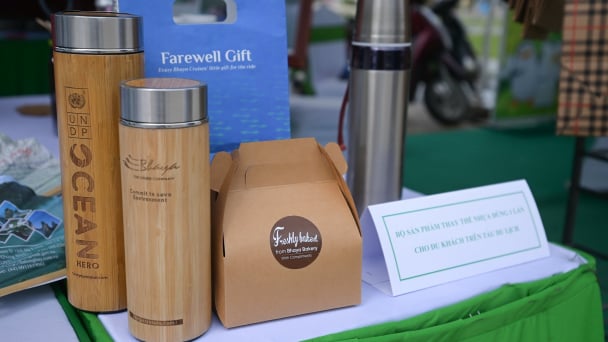
(VAN) Over the past five years, Quang Ninh Province has vigorously and synchronously implemented the ‘Say No to Plastic Waste’ campaign, yielding positive outcomes in advancing sustainable tourism.

(VAN) The prevention of plastic pollution necessitates collaboration among governments, businesses, and citizens. Today's little things contribute to a future free of plastic.

(VAN) This was the directive given by Deputy Minister Phung Duc Tien during a meeting with the Department of Livestock Production and Animal Health, and relevant stakeholders to prevent and control African swine fever.
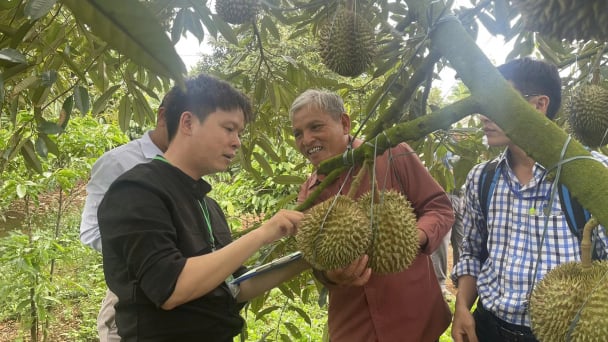
(VAN) For the durian industry to succeed, the value chain must fulfill its commitments to the government, the community, and international partners.

(VAN) Vaccinating juvenile pangasius helps reduce disease, antibiotic use, and farming costs, increasing profits for export-oriented farmers in An Giang.

(VAN) Due to a limited supply of workforce and competitive recruitment requirements, businesses struggle to retain talented veterinary human resources.